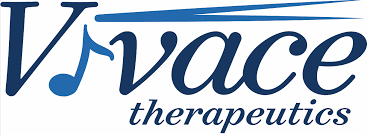Mesothelioma is a rare but aggressive cancer affecting tens of thousands of people globally each year. The burden is highest in regions with historical asbestos exposure, and patients facing the disease often have few treatment options and an urgent need for innovation.
Vivace, a company that develops cancer treatments, hit a major milestone with its lead program – and will start registrational studies in mesothelioma with its first-in-class TEAD inhibitor.
Several years ago, Canaan and WuXi Ventures created a start-up called Vivace Therapeutics, led by Sofie Qiao and Len Post. Vivace set out to target the Hippo Yap pathway, a developmental pathway that, when activated later in life, can result in uncontrolled tissue growth and cancer. The company is tiny but powerful, with never more than 10 employees, once again demonstrating the impact of small, talented teams.
Along the way, we were joined by friends from RA Capital, Boxer Capital, Cenova Capital, and HongShan Capital. By developing medicines called TEAD inhibitors (TEADi) that block the terminal part of this pathway, we were able to add substantially to the fundamental understanding of Hippo Yap biology in mesothelioma.
Today at ESMO and published concurrently in Nature Medicine, Vivace has presented data from patients with malignant mesothelioma who have failed the few options for treatment currently available, and show that our medicine, VT3989, provides important benefits to patients in dire need of treatment options. Data show VT3989 can deliver tumor shrinkage and long-term disease stability for patients - helping them reclaim time. VT3989 now heads to the last leg of its journey, Phase 3, and hopefully will be approved by regulatory agencies and available to patients around the world in about 3 years.
Vivace plans to initiate a pivotal Phase 3 trial for VT3989 in the first half of 2026 with the potential to bring a new therapy to thousands of patients worldwide.
It is amazing to be on this journey with the talented Vivace team, committed academic oncologists who lead us in clinical development studies, and the patients who volunteer for these studies. The world can't wait for VT3989 to be approved by regulators!
